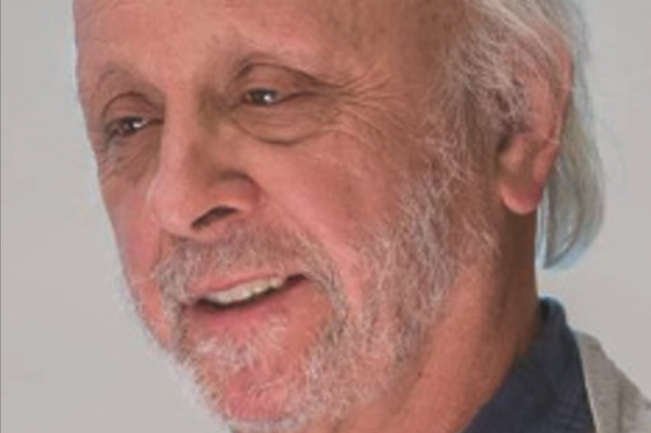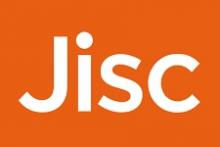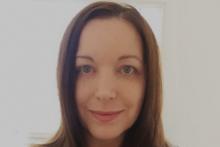Breaking down barriers

David Nicholas discusses open science and the new wave of researchers
Sometimes it feels that decisions about scholarly communications are made on behalf of researchers by policy makers, research funders, librarians and, occasionally, publishers. Researchers, perhaps not trusted, are expected to tow along.
It seems that is happening in connection with open science. In the light of this, it is vitally important to shine the torch on the needs and behaviours of the community of researchers to whom it probably counts the most – early career researchers (ECRs), the newest and biggest wave of researchers who will populate the improved new open scholarly world (and they will be the judge of that).
This is a community that has largely gone unheard and, fortunately, is one that Ciber has been studying and interacting with for three years during the Harbingers project (http://ciber-research.eu/harbingers.html), which sought to determine whether ECRs are the harbingers of change when it comes to scholarly communications1.
The project covered nearly 120 ECRs from seven countries (China, France, Malaysia, Poland, Spain, UK, US) and, as part of it, annual, deep conversations were conducted with ECRs about open science and its component parts. It is well worth listening to ECRs on open science, not just because they are going to be the future, but also because they are the community who have the most to do with the scholarly communications system, because they are the research engine room: they do most of the discovery work and undertake many of the authorship and publishing practices.
As we shall learn, the trouble with asking ECRs about open science is that, like so many other researchers, they either do not know at all what you are talking about, or simply misunderstand what it is all about. So, you have to tell them, but that is not easy because even those charged with coming up with definitions do not speak as one.
Let’s, then, first look at the definition provided by the main disciple of open science – the European Commission. Its definition, which follows, reminds us that OS is as much a philosophy or mission, as a collection of scholarly practices: open science describes the ongoing transitions in the way research is performed, researchers collaborate, knowledge is shared and science is organised. It represents a new approach to the scientific process based on co-operative work and new ways of knowledge distribution using digital technologies and new collaborative tools2.
Of course, this scholarly motherhood and apple pie definition is not much help trying to explain things to researchers at the sharp end, so let’s move to one produced specifically for ECRs. Eurodoc, the European Council for Doctoral Candidates and Junior Researchers provide this: open science is essentially an umbrella term for various practices such as open access, open data, open methodology, open source, open peer review, open education, alternative metrics and citizen science3.
We have moved from a definition that lists nothing, to one that lists everything, but the kitchen sink. The question arises, how do you ask about all these things, many of which have never been heard about, never mind practiced? You can see now, why it’s best to take the results of the questionnaire surveys which have been undertaken on open science and usually portray researchers as liking most of it with a big pinch of salt; instead, it’s far better to build a level of trust, discuss with them what they do in the way of scholarly activities and make the judgement for yourself, which is largely what we did.
If you can overlook the problems of asking about it, in theory, anyway, open science should be welcomed with open arms because it offers numerous potential benefits for ECRs: a) a bigger/wider audience of readers because papers no longer hide behind paywalls; b) more reads, social media mentions and, it is argued, citations (ECRs’ reputational currency) as a consequence of that expanded audience; c) improved chances of collaboration; d) a close fit with their Millennial views on transparency, sharing and level playing fields; e) a greater chance to publish because there are more outlets with more favourable levels of admission; f) an enhanced visibility-associated reputation.
Despite all this, our research shows that when it comes to open science, it is very early days indeed for ECRs. As mentioned earlier, even given the increasing promotion of open science by the EC and force-feeding by funders, such as the Wellcome Foundation, most ECRs display little understanding of what it means and, it follows, they believe they do not even practice it.
The extent of confusion can also be seen by the fact that some ECRs consider blogs and social media to be part of open science with, for instance, 8 out of 10 Polish ECRS believing so.
There is not only confusion over what open science is, but also negativity, with French ECRs exhibiting antagonism and mistrusting the whole agenda: they see a new means of imposing control and evaluation. More damning, perhaps, is that some ECRs believe that it is opening the doors wide to criticism (‘who would want that’ asked one?), inviting plagiarism and ‘hippy science’ (‘anyone who has a view, no matter what their knowledgebase, can comment’). Another ECR put it this way: ‘I am wary of the role of technological innovations like this. We should consider the issue carefully and give some thought to aspects like authorship, intellectual property and the quality of data that are published.’
Most probably, though, reputational concerns weigh the greatest with ECRs. The building of reputation means a lot to ECRs striving for tenure and permanent positions, so while they are keen on open science in principle, they recognise that, in practice, for purposes of grants, promotion and tenure, for instance, open access publishing ranks low in the criteria for seeking a journal in which to publish their papers. The same goes for open data – they need the data for themselves to get out those high impact factor papers, which will advance their careers.
That is not to say that there is no understanding of the topic, and those who do understand, largely see it as a beneficial mechanism for disseminating, sharing and collaborating: ‘Yes, it means a lot. It breaks down the barriers to collaborating. For example, in the old days, researchers had to know a researcher to collaborate and come from a top university. Open Science allows people to freely spread their own ideas and collaborate.’
Open access is the open science aspect that ECRs are most familiar with and this is partly to do with the fact that it has been around a decade now. Indeed, it is often seen not to be just a component part of OS, but another name for it.
The big attractions are that it is seen as increasingly ethical and provides easy access to content, a larger audience for their work, greater visibility and greater (citation) impact.
Cost is the biggest downside, ECRs don’t like the idea even of paying APCs; second, is the fact that high impact factor OA journals, necessary for career advancement, are thin on the ground and third, OA journals are being tarred by the predatory brush.
Open data is more problematical, with it thought to benefit science in the long run, but in here-and-now concerns about the need to maximise its value to the researcher and, less so, losing competitive advantage, it acts as an anchor on practice. As one ECR put it: ‘Data is the most important intellectual asset in our field. Why share it? However, when I have fully exploited it and published my papers, I will give it to others, but it is really useless for others to use it.’
Open peer review is the most problematical of all and double blind much preferred. This is because ECRs do not welcome the visibility that open peer review brings with it, as it could have (negative) reputational consequences for them: ‘Open peer review is tricky, because you engage your own reputation as a reviewer.’ Anonymity is thought to provide greater opportunities for young researchers and women. French ECRs, in particular, are very cautious and suspicious of anything labelled as ‘open’. There was a sense that by opening the door to all, it meant anything could happen.
In conclusion, open access has been with us for more than a decade now and is only just beginning to find its feet, so we are not holding our breath that open data, open peer review et al will become the norm any time soon.
Nevertheless, a number of countries are rolling out open science national plans, and funders will expect compliance down the line, but that will only come about if the current reward system is changed to provide incentives to think and practice open science. And, it has to be said, this looks unlikely to happen, as the reward system is too entrenched for that.
Finally, there is a bigger problem, which, if anything, seems even further away from resolution. Open science is about dismantling the traditional scholarly system with its paywalls, gatekeepers, brand names, copyright concerns and exclusivity.
This article has been written with the help of the Harbinger team: Cherifa Boukacem-Zeghmouri, Anthony Watkinson, Abdullah Abrizah, Blanca Rodríguez-Bravo, Jie Xu, Marzena Świgon and Eti Herman
References
1. This article is based on current research which is continuing and will be produced in full at a later date. See (http://ciber-research.eu/harbingers.html) to keep in touch.
2. https://ec.europa.eu/research/openscience/index.cfm?pg=open-science-policy-platform-faqs
3. https://www.ingentaconnect.com/content/sil/impact/2018/00002018/00000006/art00024?crawler=true&mimetype=application/pdf









